The Culture
Chicago teen who entered college at 10 earns doctorate at 17
Dorothy Jean Tillman is the youngest person in Arizona State University history to earn a doctoral degree in integrated behavioral health.
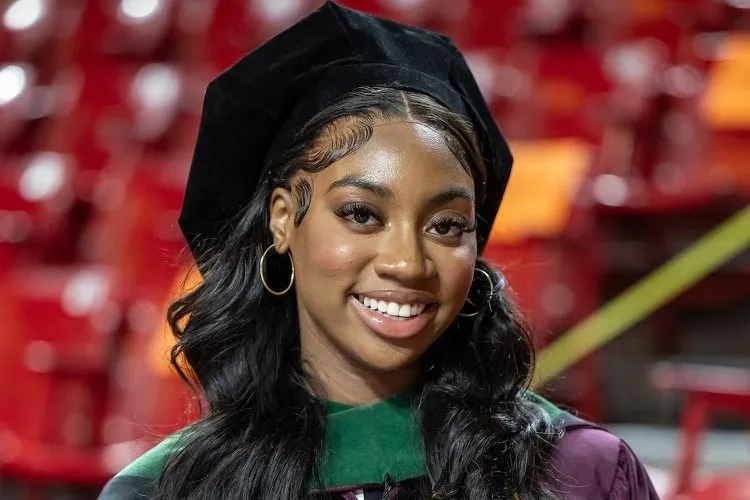
CHICAGO (AP) — Dorothy Jean Tillman II’s participation in Arizona State University’s May 6 commencement was the latest step on a higher-education journey the Chicago teen started when she took her first college course at age 10.
In between came associate’s, bachelor’s and master’s degrees.
When Tillman successfully defended her dissertation in December, she became the youngest person — at age 17 — to earn a doctoral degree in integrated behavioral health at Arizona State, associate professor Leslie Manson told ABC’s “Good Morning America” for a story Monday.
“It’s a wonderful celebration, and we hope … that Dorothy Jean inspires more students,” Manson said. “But this is still something so rare and unique.”
Tillman, called “Dorothy Jeanius” by family and friends, is the granddaughter of former Chicago Alderwoman Dorothy Tillman.
When most students are just learning to navigate middle school, her mother enrolled Tillman in classes through the College of Lake County in northern Illinois, where she majored in psychology and completed her associate’s degree in 2016, according to her biography.
Tillman earned a bachelor’s in humanities from New York’s Excelsior College in 2018. About two years later, she earned her master’s of science from Unity College in Maine before being accepted in 2021 into Arizona State’s Behavioral Health Management Program.
Most of her classwork was done remotely and online. Tillman did attend her Arizona State commencement in person and addressed the graduating class during the ceremony.
Tillman told The Associated Press on Tuesday that she credits her grandmother and trusting in her mother’s guidance for her educational pursuits and successes.
“Everything that we were doing didn’t seem abnormal to me or out of the ordinary until it started getting all of the attention,” said Tillman, now 18.
There have been sacrifices, though.
“I didn’t have the everyday school things like homecoming dances or spirit weeks or just school pictures and things like that … that kind of create unity with my peers,” she said.
She has found time to dance and do choreography. Tillman also is founder and chief executive of the Dorothyjeanius STEAM Leadership Institute. The program includes summer camps designed to help young people in the arts and STEM subjects.
She said her plans include public speaking engagements and fundraising for the camp, which Tillman said she hopes to franchise one day.
Tillman is motivated and has innovative ideas, said Manson, adding, “And truly, I think what is inspiring is that she embodies that meaning of being a true leader.”
Jimalita Tillman said she is most impressed with her daughter’s ability to show herself and her successes with grace, but to also understand when to “put her foot down” when choosing between social outings and her education.
The Culture
Historically Black Coconut Grove in Miami nurtured young athletes. Now that legacy is under threat
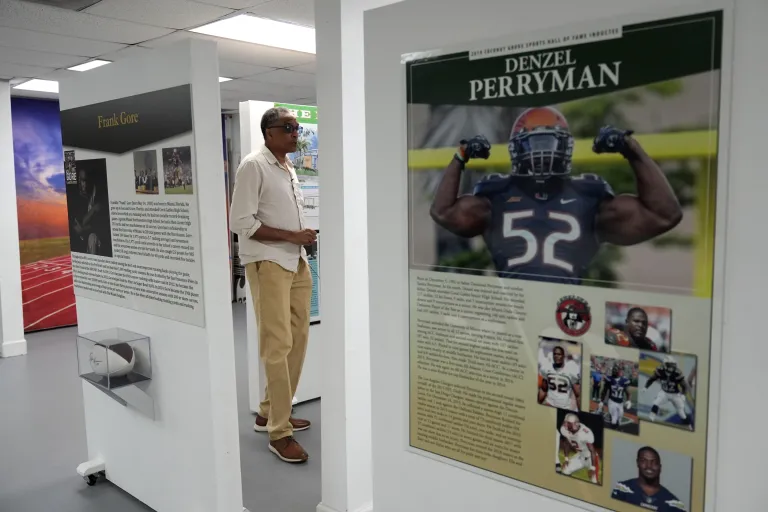
Amari Cooper’s football jersey hangs in the Coconut Grove Sports Hall of Fame. So does Frank Gore’s, alongside tributes to Negro League baseball player Jim Colzie and football coach Traz Powell, whose name adorns perhaps the most revered high school football stadium in talent-rich South Florida.
They represent West Coconut Grove when it was a vital majority-Black neighborhood hidden among some of the most affluent areas in Miami that boomed with family businesses, local hangouts and sporting events. Some call it West Grove, Black Grove or Little Bahamas in a nod to its roots. Most just call it The Grove — a place steeped in cultural history transformed by the decades.
“When you talk about what is The Grove, you’re talking about true history of South Florida,” said Charles Gibson, grandson of one of the first Black members of the Miami City Commission, Theodore Gibson.
“When you talk about what is The Grove, you’re talking about true history of South Florida.”
Sports was its heartbeat. It nurtured the early careers of Olympic gold medalists and football stars like Cooper, national champions and future football Hall of Famers like Gore, all of whom trace their first sports memories to this close-knit community.
Today, few remnants of that proud Black heritage exist. Years of economic neglect followed by recent gentrification have wiped out much of the neighborhood’s cultural backbone. Robust youth leagues and sports programs have dwindled. Now, the community that once created an environment for young athletes to succeed — a trusted neighbor watching out for a young football player on his walk to practice, a respected coach instilling discipline and persistence in a future track star — is at risk of extinction.
To read this article in its entirety, visit The Associated Press
Politics
Maryland Gov. Wes Moore set to issue more than 175,000 pardons for marijuana convictions
Moore plans to sign the executive order Monday morning in the capitol in Annapolis with Maryland Attorney General Anthony Brown in attendance.
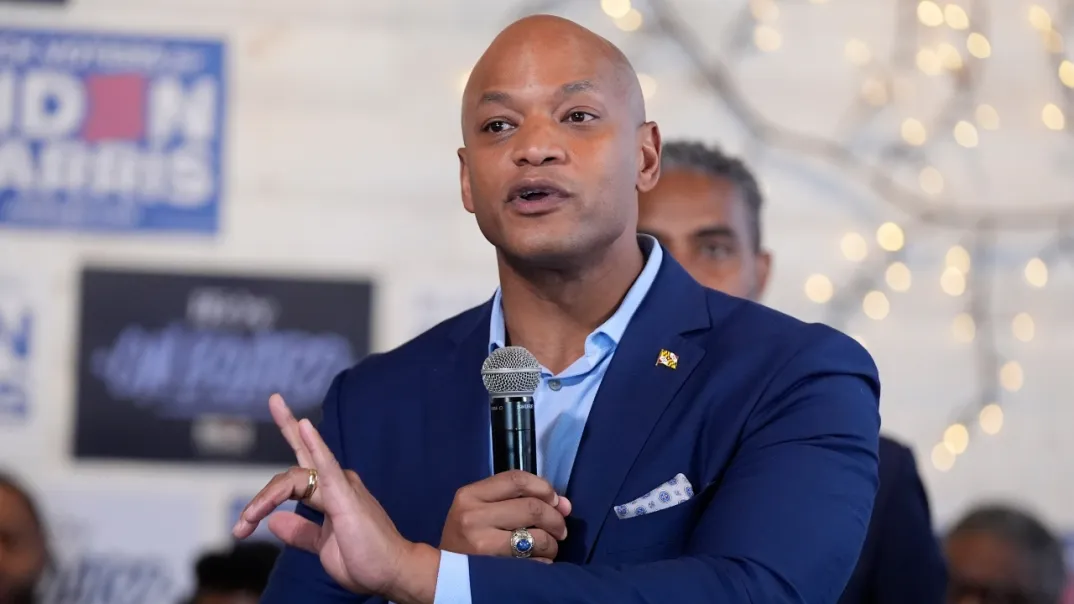
Maryland Gov. Wes Moore is scheduled to sign an executive order to issue more than 175,000 pardons for marijuana convictions Monday, the governor’s office said.
The administration is describing the pardons as the largest state pardon to date. The governor’s action regarding cases relating to use of paraphernalia make Maryland the first state to take such action, his office said.
The pardons will forgive low-level marijuana possession charges for an estimated 100,000 people, according to The Washington Post, which first reported on the order Sunday night.
Moore plans to sign the executive order Monday morning in the state Capitol in Annapolis with Maryland Attorney General Anthony Brown in attendance.
Recreational cannabis was legalized in Maryland in 2023 after voters approved a constitutional amendment in 2022 with 67% of the vote. Maryland decriminalized possession of personal use amounts of cannabis on Jan. 1, 2023. Now, 24 states and the District of Columbia have legalized recreational cannabis.
“The Moore-Miller Administration is committed to promoting social equity and ensuring the fair and equitable administration of justice,” the governor’s office said. “Because the use and possession of cannabis is no longer illegal in the state, Marylanders should not continue to face barriers to housing, employment, or educational opportunities based on convictions for conduct that is no longer illegal.”
“Because the use and possession of cannabis is no longer illegal in the state, Marylanders should not continue to face barriers to housing, employment, or educational opportunities based on convictions for conduct that is no longer illegal.”
Brown, a Democrat, described the pardons as “certainly long overdue as a nation” and “a racial equity issue.”
To read this article in its entirety, visit The Grio
Opinion
A study says Black people believe ‘racial conspiracy theories.’ Given this country’s history, can you blame us?
OPINION: A Pew study found that most Black people are suspicious of government institutions. There is a long list of reasons why Black Americans believe the system is set up against them.

It is both possible that Black people believe in conspiracy theories, and that Black people have centuries of firsthand experience with real-life conspiracies waged against them. But in the end, can we really call them conspiracy theories when the receipts for actual conspiracies are plentiful and readily available?
A study from the Pew Research Center found that majorities of Black people believe in ‘racial conspiracy theories,’ specifically that American institutions are designed to hold them back. Pew defines “racial conspiracy theories” as “the suspicions that Black adults might have about the actions of U.S. institutions based on their personal and collective historical experiences with racial discrimination.”
“the suspicions that Black adults might have about the actions of U.S. institutions based on their personal and collective historical experiences with racial discrimination.”
(After the study was published, Pew later added an editor’s note to its report stating that the study is under review, and using the term “racial conspiracy theories” was “not the best choice” to make. “Black Americans’ doubts about the fairness of U.S. institutions are accompanied by suspicion. How Black Americans think those institutions impact their ability to thrive is worthy of study, and that’s the purpose of this survey,” the Pew editor said.)
To read this article in its entirety, visit The Grio
-
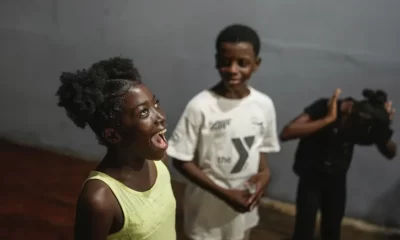
 International4 months ago
International4 months agoForced to rebuild a life at 12, a Haitian girl joins thousands seeking an escape from gang violence
-
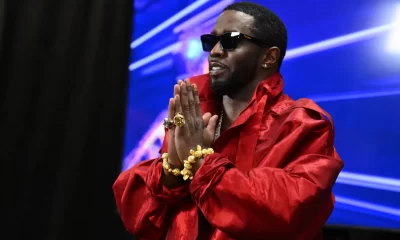
 Opinion4 months ago
Opinion4 months agoUnlike Other Badly Behaved Black Celebrities, Diddy’s Shot at Redemption Is Nearly Impossible
-

 Business3 months ago
Business3 months agoHow Uncle Nearest Founder Fawn Weaver Built A Billion-Dollar Whiskey Business
-
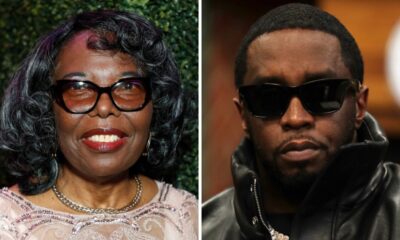
 Entertainment4 months ago
Entertainment4 months agoBiggie’s Mom, Voletta Wallace, wants to ‘slap the daylights out of Sean Combs’
-
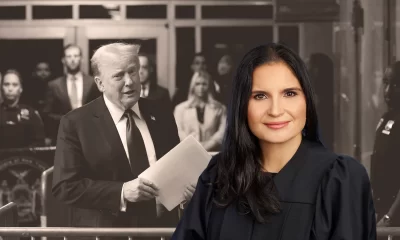
 Politics3 months ago
Politics3 months agoJudge Aileen Cannon rips up court schedule in Mar-a-Lago case in ways that benefit Trump
-
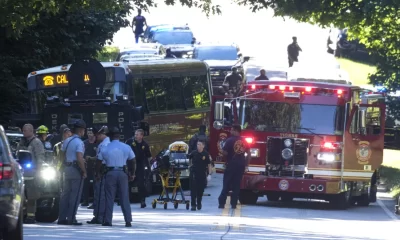
 Crime3 months ago
Crime3 months agoBus passengers frantically texted loved ones as gunman hijacked an Atlanta commuter bus during rush hour
-
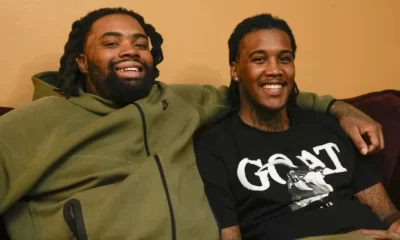
 Justice4 months ago
Justice4 months agoMan convicted of Chicago murder based on blind witness’ testimony sues city, police
-

 Sports3 months ago
Sports3 months agoCoco Gauff wins her 2nd Grand Slam tennis tourney









